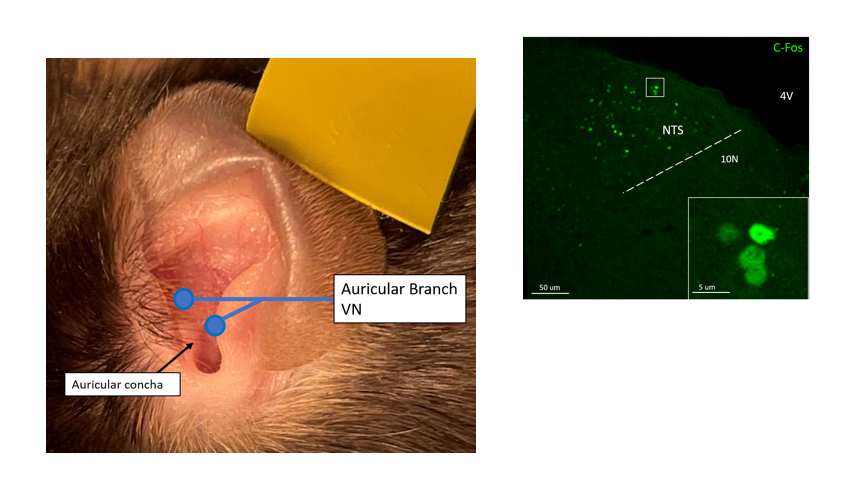Overall Goals:
Stress during pregnancy can lead to increased levels of stress hormones reaching the fetus. When in excess, these “glucocorticoids” have had a long-term negative impact on the health of the offspring. The overall goal of this project is to:
Identify the cellular and physiological pathways that are affected by overexposure to glucocorticoids and implicated in long-term, sex-selective alterations in anxiety- and depressive-like behaviors, neuroendocrine function, and autonomic (e.g. cardiovascular) and vascular responses to stress in the offspring.
Results of these studies will identify brain regions and connections that are responsible for sex-biased developmental alterations in behavioral, endocrine, and autonomic, and vascular responses in adulthood, but also reveal potential therapeutic mechanisms whereby these changes can be reversed in adulthood.
Specific Aims
Aim 1
Determine degree to which changes in the brain renin angiotensin system are responsible for altered autonomic and behavioral responses in rats that were exposed to excess glucocorticoids in utero.
Aim 2
Determine impact of prenatal glucocorticoid exposure on connectivity between brain regions responsible for control of autonomic responses to stress.
Aim 3
Evaluate the use of neuromodulation therapeutic device to restore autonomic function and behavioral responses to stress in rats that were exposed to excess glucocorticoid in utero.
Our Senior Team
Key Discoveries by Our Group
In utero exposure to excess glucocorticoids results in behavioral, cardiovascular, and metabolic changes to a greater degree in females such as:
Increased anxiety- and depressive-like behavior (Hiroi…Handa, 2016: https://www.ncbi.nlm.nih.gov/pmc/articles/PMC4840233/)
Maternal treatment with DEX causes blood brain barrier (BBB) disruption in offspring prior to puberty independent of sex [2015].
Frahm KA, Tobet SA. Brain Struct Funct. 2015;220(4):2225-34. doi: 10.1007/s00429-014-0787-8. 11. PMID: 24817635
Lack of BBB competence was not apparent after puberty. However, astrocytes and pericyte components of the BBB differed as a function of fetal exposure, but dependent on sex. Disruption in BBB components in offspring from DEX-treated mothers may affect BBB function under specific physiological challenges, resulting in altered neuronal signaling
Frahm KA, Handa RJ, Tobet SA. J Endocr Soc. 2018; 2(2):140-153. doi: 10.1210/js.2017-00439. PMID: 29383333 and an increased build-up of fat in the liver (Carbone, et al 2012; https://www.ncbi.nlm.nih.gov/pmc/articles/PMC3249671/
Current studies testing sex differences in reversibility by renin angiotensin system in altering cardiovascular response to stress in fetal offspring exposed to excess glucocorticoids





